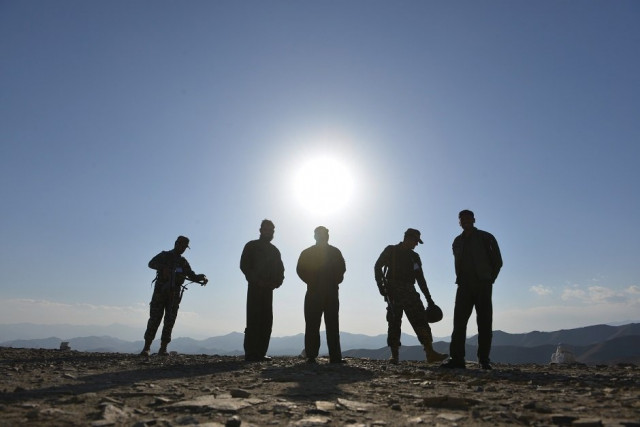‘Mistakes were made in Balochistan’
Steps being taken to ensure Baloch voices are heard, says author Major General Fida Hussain Malik

Representational image. PHOTO: AFP
Along with the author and the moderator, the panel included retired bureaucrat Tariq Khosa, who is the only civil servant from the province to serve as its police chief, and Minister of Defence Production Zubeida Jalal, a political figure from Balochistan.
With a good chunk of the author’s 33-year military career spent in the restive province, including in the Headquarters of the Southern Command, the general has a fine grasp of its history as well as its manifold challenges. He also interviewed leading politicians, including Hasil Bizenjo, Sardar Akhtar Mengal, Owais Ghani and Sanaullah Baloch, as well as his colleagues in the military and law enforcement to better understand the grievances that distress the populace.
While emphasising Balochistan’s geopolitical location and richness of resources, General Malik said that state institutions were committed to resolving the crisis on priority as part of the ‘Vision 2025’. He said that dealing with cross-cutting narratives might be a challenge while welcoming the development where the province’s problems ‘are no longer treated like a closely-guarded secret’.
For Khosa, a sitting major general writing a book on Balochistan amounted to ‘glasnost’ – referring to the Soviet policy of open discussion on political and social issues. Welcoming the ‘refreshing outlook on history’ that the book offers, he called on the powers-that-be to be wary when using terms like terrorists or insurgents when dealing with militancy in the province. He pointed out that the state needs to support the young men who are bombarded by “the venomous messages spewed by Baloch separatist leaders from their ivory towers in Europe”. He also bemoaned faulty state policies in the province, including the killing of Nawab Akbar Bugti in 2006.
The panel also underscored the need to assure the Baloch people of the benefits they can reap from mega projects including Gwadar Deep Sea Port and the China-Pakistan Economic Corridor (CPEC). Khosa recommended that the government consider the demands of the multi-party conference held by Balochistan National Party-Mengal in January 2016, in which it sought control of CPEC as per the Constitution, as well as ownership rights, power to make decisions such as initiating projects in less developed areas, non-issuance of national identity cards to new settlers, and investment in education and healthcare sectors.
The panel also discussed the socio-political and economic issues of the Baloch youth.
The author remarked that there is a tendency to blame the law enforcement authorities for the problems but other factors including the tribal system are also contributing to them.
Zubeida Jalal said that that up to 90 per cent of civil servants stationed in Balochistan are from Punjab, resulting in the knee-jerk reaction to blame Punjab. She also highlighted the need for improving security and social services.
Jalal argued that the people of Balochistan also need to take responsibility and support the federal and provincial governments in countering the challenges. She also dismissed talk of rolling back the 18th Amendment as opposition chatter to divert attention from the real issues.
The author said that steps were taken to increase the number of Baloch and Sindhi civil servants stationed in Balochistan. He added that steps were being taken to ensure that Baloch voices were heard and all those seeking to be part of the mainstream were made part of the greater dialogue.



















COMMENTS
Comments are moderated and generally will be posted if they are on-topic and not abusive.
For more information, please see our Comments FAQ